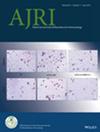Exosomes Derived From Calycosin-Exposed Prostate Stromal Cells Inhibit Lipopolysaccharide-Induced Epithelial Cells Inflammatory Injury
Abstract
Background
Chronic prostatitis (CP) is a common and serious disorder characterized by unknown pathogenic mechanisms and recurrent symptoms. Exosomes isolated from prostate stromal cells can also be used to treat chronic inflammation. This study aimed to elucidate the mechanism of action of Calycosin (CA) during CP therapy.
Material and Methods
LPS volume of 10 µg/mL was applied for constructing the cell models of CP. RWPE-1 cells were co-cultivated with exosomes isolated from CA elicited-WPMY-1 cells (CA-WPMY-1-exo). Exosomes isolated from WPMY-1 cells were identified by TEM, NTA, and western blotting. MTT and flow cytometry analyses were performed to evaluate cell viability and apoptosis, respectively. The secretion of inflammatory cytokines was measured using ELISA. The expressions of cleaved-Caspase3, Caspase3, p-p65, and p65 were determined by western blotting.
Results
LPS treatment decreased RWPE-1 cell viability and stimulated more apoptotic cells, which was partly abolished by CA treatment in a dose-dependent manner. Furthermore, CA alleviated the LPS-induced inflammatory response in a dose-dependent manner. NC-WPMY-1 and CA-WPMY-1 markedly enhanced RWPE-1 cell viability. We also found that both NC-WPMY-1-exo and CA-WPMY-1-exo reversed the effects of LPS on RWPE-1 cell viability, apoptosis, and inflammation. The effect of CA-WPMY-1-exo on RWPE-1 cells was more significant than that of NC-WPMY-1-exo.
Conclusion
Exosomes derived from CA-exposed prostate stromal cells were identified as significant mediators of CP by inhibiting LPS-induced epithelial cells inflammatory injury.

 求助内容:
求助内容: 应助结果提醒方式:
应助结果提醒方式:


